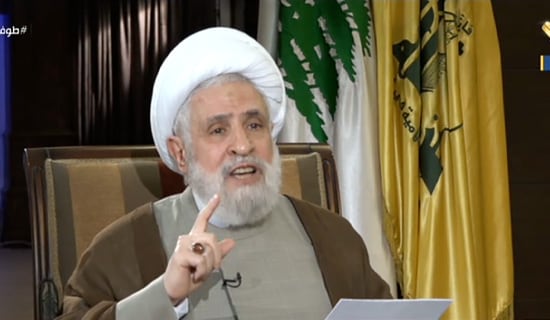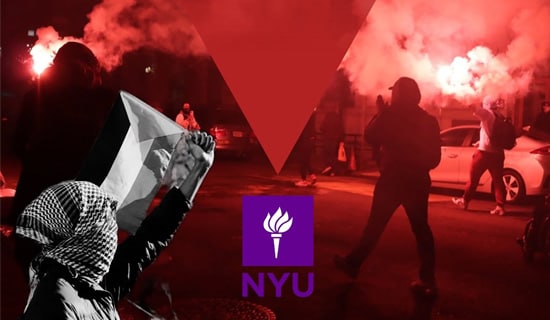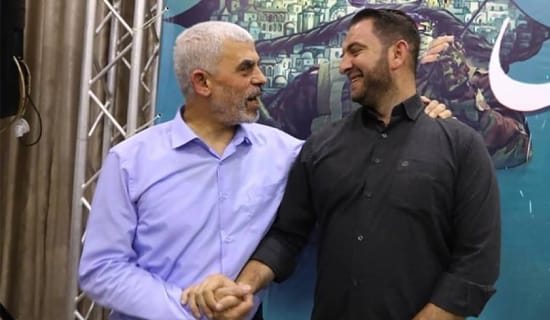In an interview on the occasion of the 'Ashura,[1] Sayyed 'Ali Al-Amin, former Shi'ite mufti of Tyre and of the Jabal 'Amal district in Lebanon, told the March 14 Forces website that the violent acts and rituals customarily carried out on that day must stop, because they are not commanded by the shari'a. Al-Amin explained that this day of remembrance is actually meant to convey a message of prohibiting hostile acts such as bloodshed, accusations of heresy (takfir), and cursing of the Companions of the Prophet – namely the very acts that have come to be part of the observance of this day.
The following are translated excerpts from the interview: [2]
Self-Flagellation Is Banned by Islam
In response to a question on the 'Ashura customs of self-flagellation and cutting one's head until blood flows, Al-Amin said: "Many of the acts that have become part of the 'Ashura rituals have no basis in the shari'a sources, and the relatives of the Prophet did not perform them after the death of Imam Al-Hussein. The writers of the sira [biography] of Al-Hussein related... that the Imam Al-Hussein's will to his sister Zaynab included a ban on scratching one's face, tearing the collar of one's garment, and similar expressions of grief... which were banned by the shari'a."
He added: "These customs were established over the centuries, out of an emotional approach, and the ulema did not amend them or teach the public what it should do at these events [i.e., during the 'Ashura]. Thus, many people [think] that these customs correspond to Islamic law, although many great ulema do not carry them out and do not approve of them..."
According to Al-Amin, "These embarrassing customs are bid'a, [namely, an innovation forbidden] by the religion and by the Shi'ite [school of thought]. Ignorant people introduced them without the permission of an imam or senior cleric. In every religion and [religious] school there are customs that are not recognized by the faith, and some people refrain from protesting about this, for fear of incurring insults or hostility. In our time, no one dares to fight these customs, except for a handful of ulema..."
Takfir is Not from Islam
SUPPORT OUR WORK

Al-Amin clarified that the custom accepted in certain places of cursing some of the Prophet's Companions during 'Ashura and accusing them of heresy is immoral and against the religion, and that there is no mention of it in the words of the Imams and righteous forefathers of the Muslim nation. He goes on to say: "It is told [in the hadiths] that at the Battle of Siffin,[3] Imam 'Ali [bin Abi Taleb] heard a group of people uttering curses and revilements, and forbade them to do so... Therefore, it is forbidden to curse, because the shari'a bans such behavior, which is distant from the principles and values of Islam and which only intensifies rifts and division among the members of the nation."
Al-Amin added that according to the Koran verses "The Believers are but a single Brotherhood [49:10]" and "Say not unto one who offereth you peace: 'Thou art not a believer [4:94],'" a Muslim must not accuse another Muslim of heresy as long as that Muslim recites the verse recited by one who enters the covenant of Islam: "There is no god but Allah and Muhammad is His Prophet."
He added that the practice of accusing others of heresy – takfir – was a forbidden innovation that had emerged during one of the darkest periods in the relations among the Islamic schools, and all ulema from all schools of Islam had agreed that it must not be repeated.
The 'Ashura Ceremony Is Aimed at Deterring Us from Bloodshed
According to Al-Amin, the 'Ashura comes to mark a sad episode in Islam's history, which involved harm to "senior ulema who were like symbols, holding a holy place in the hearts of all the Muslims, [namely] the Prophet's grandson Imam Al-Hussein, and his relatives and companions. Therefore, it was a great tragedy for all the Muslims. This day of remembrance is observed every year in order to [acknowledge] the atrocity of this crime, lest such a catastrophe reoccur in the lives of the Muslims, and in order to prevent [further] bloodshed..."
Al-Amin concluded by saying: "The Shi'ites are today requested to reexamine these customs..."
Endnotes:
[1] The 10th day of the Muslim month of Muharram, when Shi'ites mourn Imam Hussein, son of 'Ali, who was killed by the Umayyads in the Battle of Karbala in 680.
[2] 14March.org, December 22, 2009.
[3] The battle in 657 between the forces of 'Ali and those of the first Umayyad caliph, Muawiya ibn Abi Sufyan.




